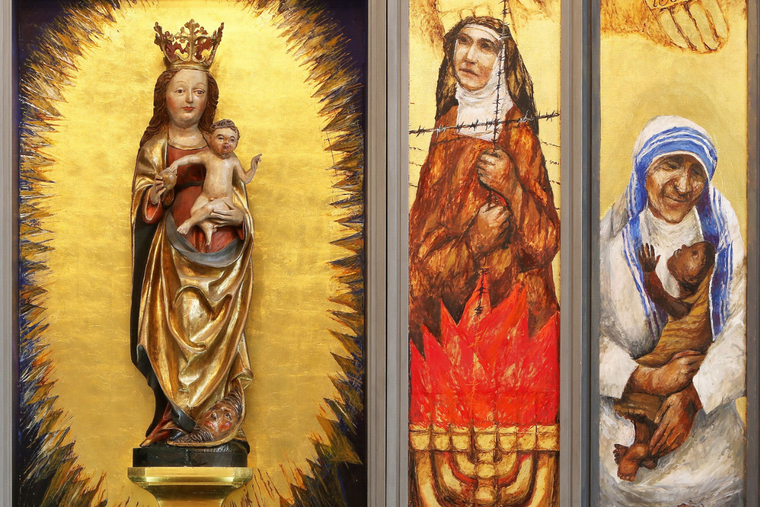- Feb 5, 2002
- 166,650
- 56,274
- Country
- United States
- Faith
- Catholic
- Marital Status
- Married
- Politics
- US-Others
St. Teresa Benedicta of the Cross, in her philosophical essays, showed that women are endowed with wonderful, God-given natures.
“Why can’t a woman be more like a man?” is a famous lament expressed by professor Henry Higgins in My Fair Lady. Although the song brought laughter to audiences, the lingering question about the differences between men and women still is hotly debated today.
Feminists weren’t much help in answering the question, since they didn’t want to acknowledge any innate traits distinguishing men from women. Feminists in the popular press were largely atheists, and by denying God as the Creator, they denied the reality of inborn masculine and feminine natures. As the atheistic philosopher Simone de Beauvoir so famously put it, “One is not born, but becomes a woman.”
In their attempt to level the playing field between men and women, feminists made some big blunders. One was assuming that whatever work women traditionally did was inferior to men’s undertakings. Since men left the home to make a living, feminists concluded women must do the same. As the decades roll on, many women find themselves trying to do everything: take care of the home and family, plus be successful in the workplace. The stress of trying to juggle home and professional life continues to stalk women.
When it came to relationships, feminists made another blunder by pointing, once again, to men as the standard. Since men had multiple sexual relationships without apparent emotional harm, they asserted that women should follow suit. But when women try to be casual in their relationships, they soon discover the devastating emotional ramifications of “hooking up,” because women especially connect sex with love and commitment.
Continued below.

 www.ncregister.com
www.ncregister.com
“Why can’t a woman be more like a man?” is a famous lament expressed by professor Henry Higgins in My Fair Lady. Although the song brought laughter to audiences, the lingering question about the differences between men and women still is hotly debated today.
Feminists weren’t much help in answering the question, since they didn’t want to acknowledge any innate traits distinguishing men from women. Feminists in the popular press were largely atheists, and by denying God as the Creator, they denied the reality of inborn masculine and feminine natures. As the atheistic philosopher Simone de Beauvoir so famously put it, “One is not born, but becomes a woman.”
In their attempt to level the playing field between men and women, feminists made some big blunders. One was assuming that whatever work women traditionally did was inferior to men’s undertakings. Since men left the home to make a living, feminists concluded women must do the same. As the decades roll on, many women find themselves trying to do everything: take care of the home and family, plus be successful in the workplace. The stress of trying to juggle home and professional life continues to stalk women.
When it came to relationships, feminists made another blunder by pointing, once again, to men as the standard. Since men had multiple sexual relationships without apparent emotional harm, they asserted that women should follow suit. But when women try to be casual in their relationships, they soon discover the devastating emotional ramifications of “hooking up,” because women especially connect sex with love and commitment.
Continued below.

A Catholic Definition of Womanhood From Edith Stein, Defender of Women
St. Teresa Benedicta of the Cross, in her philosophical essays, showed that women are endowed with wonderful, God-given natures.
